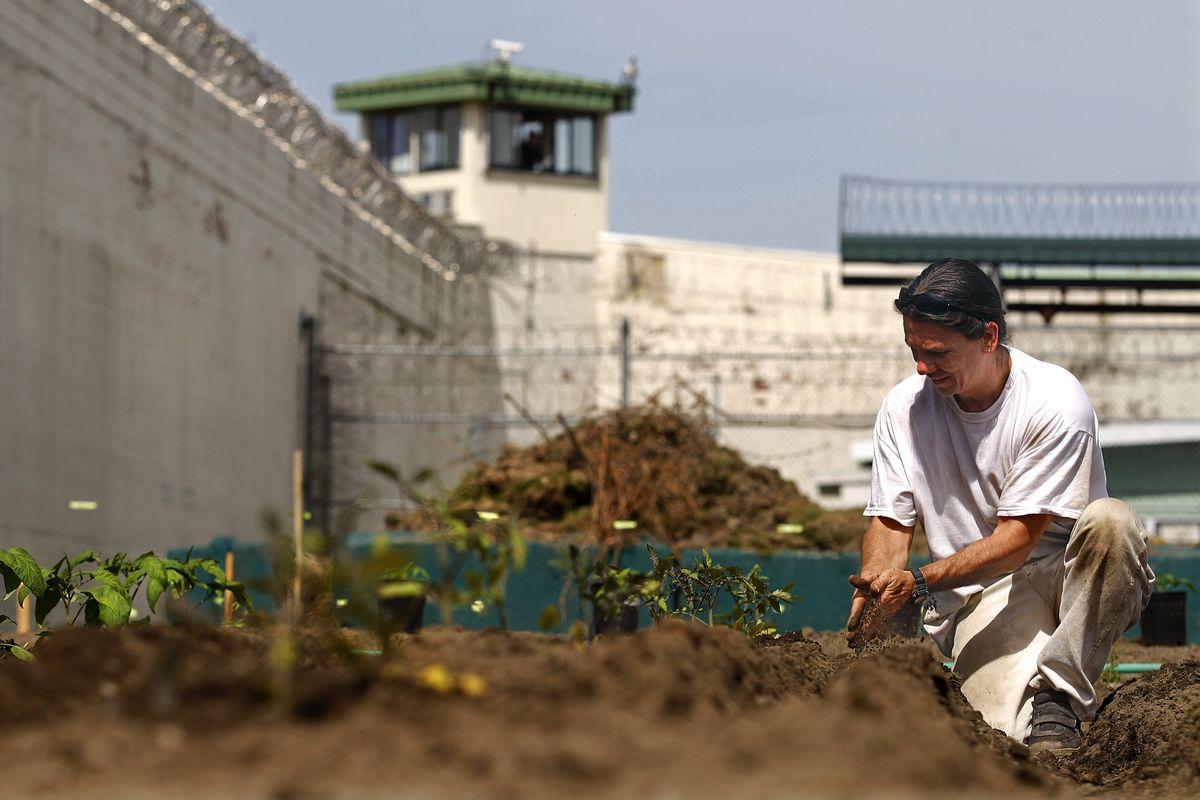Prison cuts costs with push mowers
Corrections center programs reduce waste, fuel use

MONROE, Wash. – The push mowers rolled back and forth across a green lawn at the Monroe Correctional Complex.
Tony Turner, serving time for assault and hit-and-run, was behind one.
His face was beaded with sweat by late Monday morning.
“It’s a good arm and leg workout,” said Turner, 28.
Prison officials are realizing it’s also a good way to save money.
The Monroe prison is joining a growing list of state prisons that are trimming their budgets with environmentally sound practices. The push mowers, for instance, cut gas consumption in Monroe by about 100 gallons a month.
“That’s the advantage when you’ve got time,” Monroe prison superintendent Scott Frakes said. “No use in going high-tech.”
Environmentally sound programs aren’t new to prisons. Neither are tight budgets. Both are increasingly commonplace, however.
The state wants to cut 1,580 beds from the prison system, potentially saving $65 million over four years.
The Monroe prison – the state’s largest, with an annual budget of $106 million – escaped deep cuts last year, but still needs to operate under tight conditions.
“We have no reason to think that we won’t have to do some more budget reducing this year and possibly next,” Frakes said. “The need for efficiencies is going to touch every single thing we do.”
That’s where environmentally sound practices enter the picture.
Some of those have been in place for years. But other projects are newer, such as one where inmates receive old mattresses, break them down into components – metal, stuffing – and ship everything they can out to be recycled.
The state doesn’t know how much money it can save by expanding programs such as composting and gardening throughout the prison system.
Because it’s the state’s largest facility, Monroe can help tease out those numbers.
“You just apply it all on a much grander scale,” said Dan Pacholke, deputy director of prisons for the state.
Take the compost program. It began in 2004 at Cedar Creek Corrections Center, a 500-person minimum security work camp outside Olympia.
Monroe launched its own carefully monitored program in June. By the end of the year, it saved $43,000 on waste bills. The program has redirected 1 million pounds of food and trash away from landfills. That compost may wind up in stores and, eventually, neighborhood gardens.
While budget pressures are a driving force behind the programs, the new initiatives have advantages beyond the bottom line.
For example, those push mowers make prison a bit safer. They keep inmates away from gasoline, which can be used as a weapon, drug or bartering item.
“All kinds of undesirable things,” Frakes said.
The jobs also act as a reward, improving discipline. Anecdotal evidence suggests inmates are less likely to break rules when they know they could lose a job they enjoy, prison officials said.
That certainly seems to be the case with Rory Brown, 47, who will be in prison until 2034 for rape, burglary and robbery.
Brown works in the gardens, which are new to Monroe this year. The work keeps him out of trouble. It makes him feel good. He knows the tomatoes he grows will wind up in his own meals, and the flowers may stock a garden bed outside the prison walls.
He was in a greenhouse on Monday, tending to flowers – impatiens.
“We’re all excited because they’ve bloomed,” he said. “We’re like a bunch of old ladies.”